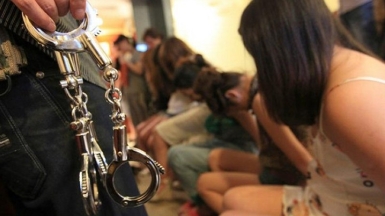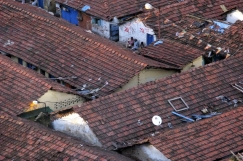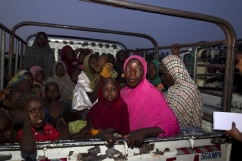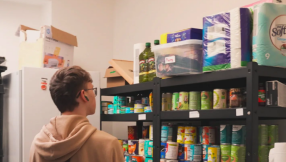Nuns dressed as prostitutes are tackling human trafficking across 140 countries.

Talitha Kum is a network of 1,100 sisters which currently operates in about 80 countries but the demand for efforts to combat trafficking and slavery was rising globally. The group began in 2004 and is expanding to fight for the estimated 73 million people who are trafficked, Reuters reports.
"I'm not trying to be sensational but I'm trying to underscore the fact this is a world that has lost innocence ... where dark forces are active," said John Studzinski, an investment banker who chairs Talitha Kum.
Talitha Kum means "arise child" in Aramaic. The phrase is found in Mark 5.41 where Jesus raised Jairus' daughter from the dead. As well as chairing the network, Studzinski is also vice chairman of US investment bank The Blackstone Group.
The charity estimates that one per cent of the world's population are trafficked. That equates to 73 million people, 70 per cent of whom are women and half are aged 16 or younger.
"These are problems caused by poverty and equality but it goes well beyond that," he told the Trust Women Conference on women's rights and trafficking hosted by the Thomson Reuters Foundation.
Detailing some cases involving trafficking and slavery, Studzinski said the treatment of some victims was horrific.
He told of one woman enslaved as a prostitute who was locked up for a week without food, forced to eat own her faeces, when she failed to have sex with a target of 12 clients a day.
In another extreme case, one woman was forced to have sex with a group of 10 men at the same time.
Studzinski said the religious sisters working to combat trafficking would go to all lengths to rescue women, often dressing up as prostitutes and going out on the street to integrate themselves into brothels.
"These sisters do not trust anyone. They do not trust governments, they do not trust corporations, and they don't trust the local police. In some cases they cannot trust male clergy," he said, adding that the low-key group preferred to focus on their rescue work rather than promotion.
"They work in brothels. No one knows they are there."
The sisters were also proactive on trying to save children being sold into slavery by their parents, setting up a network of homes in Africa as well as in the Philippines, Brazil and India to shelter such children.
He said the religious sisters of Talitha Kum raised money to purchase these children.
"This is a new network of houses for children around the world who would otherwise be sold into slavery. It is shocking but it is real," he said.
Studzinski said the network of religious sisters, that was in the process of expanding, also targeted slavery in the supply chain with sisters shedding their habits and working alongside locals for as little as 2 U.S. cents an hour to uncover abuses.
Additional reporting from Reuters.

















